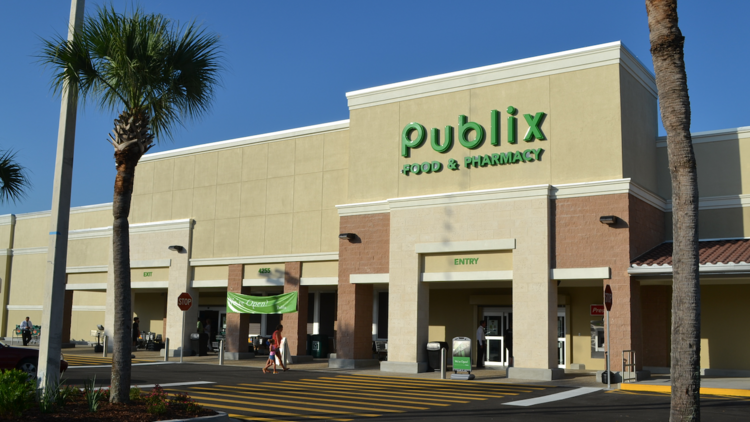Here's another sign that Virginia will be a combat
zone for Publix
Aug 22, 2016, 7:36am
EDT Updated Aug 23, 2016, 3:12pm EDT
Ashley Gurbal
KritzerSenior ReporterTampa Bay Business Journal
The entrance of Publix Super Markets Inc. into Virginia
looks even more fraught with competition.
German discount grocer Aldi announced last week that it will
build a regional headquarters and distribution center in Virginia's Dinwiddie
County, which is just south of Richmond.
The stakes just got
higher for Publix in Virginia.
SPECIAL
Aldi has 32 stores in Virginia and wants to add another 60 in
the next five years, its CEO told the Richmond
Times-Dispatch. That means Aldi is putting a major focus on Virginia
at the same time as Lakeland-based Publix.
Publix set its sights on Virginia this year, announcing two stores there in
February and plans to buy 10
more stores in the Richmond area — former Martins Food Markets — in July.
When the acquisition of the Martins stores was announced, Publix
CEO Todd Jones said in a statement that the
deal was part of the grocer's "aggressive growth plans" for Virginia.
As Publix grows its retail footprint, it means job growth at its headquarters
in Lakeland — the majority of jobs
created by a new store are in support facilities, including those in Lakeland.
Aldi, long known for its private label goods and no-frills
approach to grocery shopping, could present a stumbling block for Publix's
plans. Virginia is already uncharted territory for Publix — it's the first time
the grocer will face off against
New York-based Wegmans Food Markets. Aldi's plans add another layer of
competition for Publix.
While Aldi has been in the U.S. since the 1970s, it's only
recently become a threat to mainstream grocers like Publix.
Aldi has stepped up its selection of organic and natural
products — a segment that's helped Publix reel in more shoppers and steal
market share from players like Whole Foods Market Inc. in recent years.
In March, Aldi announced it would start taking credit cards. It
previously accepted only cash and debit cards. It also added "healthier
checklanes," eliminating the typical impulse-buy junk food from the cash
register area.
All of these things are meant to retain the middle and upper
class customers who started shopping at Aldi during the Great Recession — and
so far, continue to do so.
"Between same-store sales growth and new stores, Aldi is
probably the hottest mainstream food retailer right now," Jim Hertel, senior vice president at Willard
Bishop, an Inmar Analytics Co., a Chicago-based food retailing consulting firm,
previously told the Tampa Bay Business Journal.

No comments:
Post a Comment